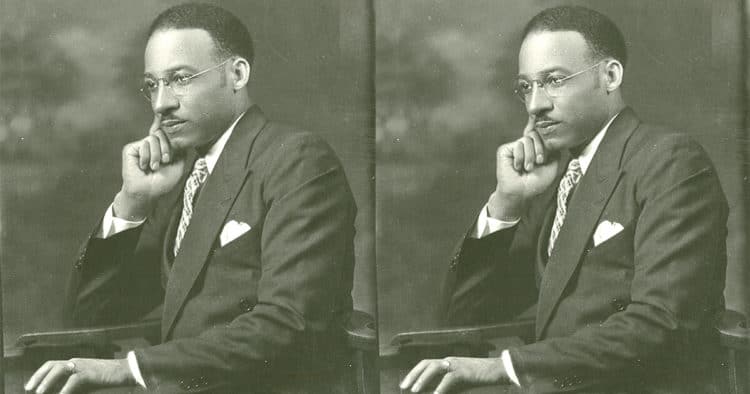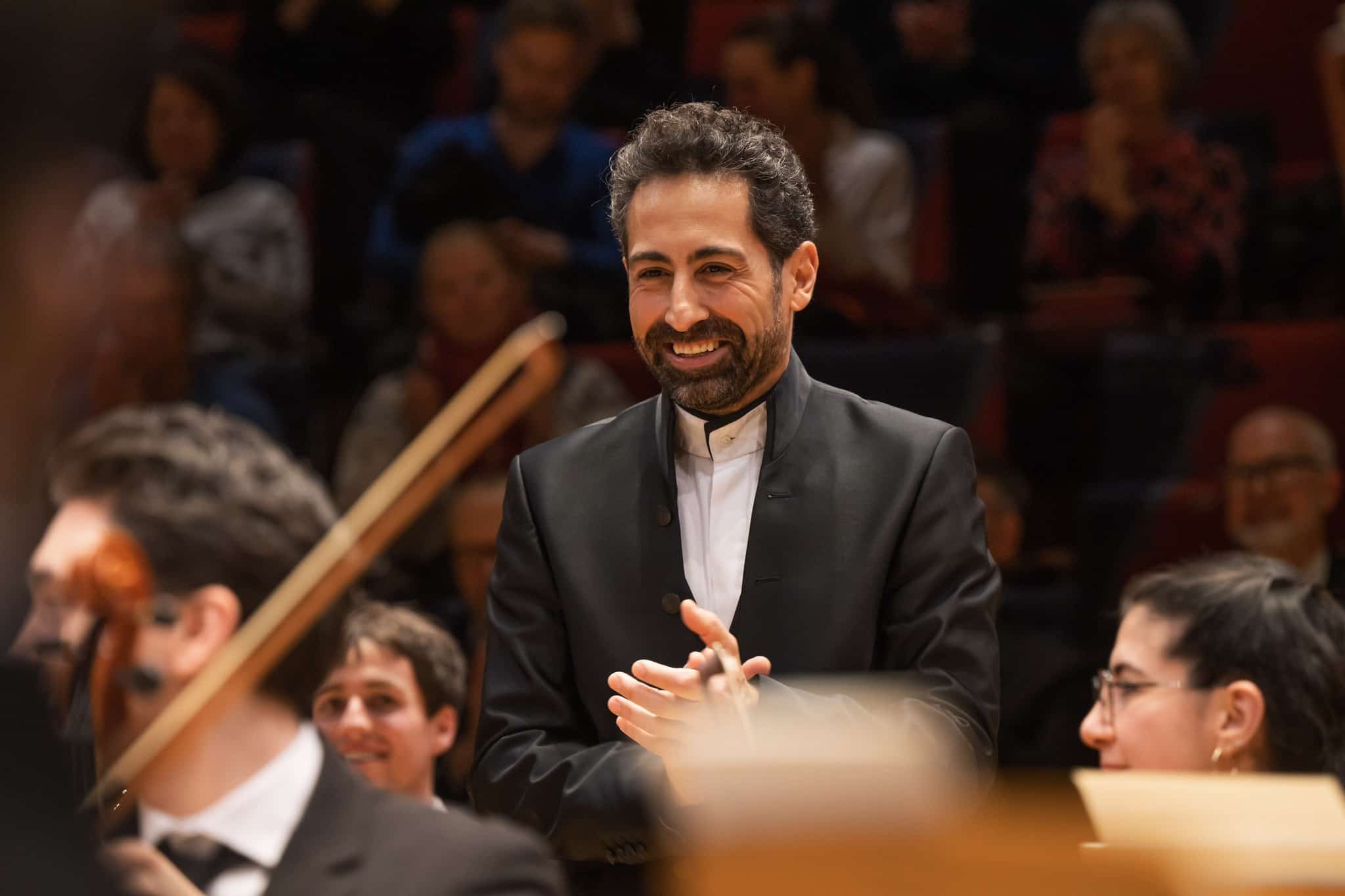Why is American orchestral music institutionally white?
mainFrom Joseph Horowitz’s new essay on the whiteness of American classical music:
What’s the pertinence of Aaron Copland’s poor opinion of “Mr. Gershwin’s jazz”? Of Virgil Thomson’s view that American folk music was fundamentally white? Of Leopold Stokowski’s credible assertion that William Dawson’s Negro Folk Symphony(1934) marked “a wonderful development in American music”? And whatever happened to that formidable symphony, greeted by one eminent critic as “the most distinctive and promising American symphonic proclamation which has so far been achieved”?…
Read the full essay here.






Thanks for posting this.
Is that a serious question? America is institutionally white because of colonization, slavery, white supremacy, and racism, so it follows that its music is too.
Oh good grief.
Because its roots are in White Europe
Is there a non-white Europe?
There is now. You will accept Leftism as your lord and saviour, and love it, good and hard.
There certainly is now, however I strongly doubt that the new immigrants will contribute much too high art, unless led by Barenboim.
Of course there is. But its culture is supposed to be colour blind and mostly, it is.
Actually, America’s “roots” (did you intend to reference the Alex Haley book?) and culture are based as much in Africa as they are in Europe. It’s just that the European version of history and history are the ones that has been taught for 200+ years.
I meant to write “…version of history and culture…”
The Dawson symphony, and it is a very moving, exciting work, and appears too frequently, to be sure. I’ve played it twice, each time for a Black History Month concert – like it’s not worthy of other times. Did it help bring in minority audience members? Nope. One of the things holding this wonderful work back is the miserable condition of the rental parts and the score. Changes by the composer are penciled in, crossed out and it’s hard to read. Someone really needs to do a modern edition in clear to read score and parts. The Still Afro-American Symphony needs the same treatment!
Conversely, I had never even heard of the piece until my mid-30s, and I was quite shocked the first time I heard it – I’ve wasted plenty of time playing lesser works by more famous (white) composers. I’d much rather perform this than, say, Symphonic Dances From West Side Story every other year.
Not a surprise about the rental parts, unfortunately. Sometimes I think going out of copyright will be a huge advance for these composers, because there are many community, school, and youth orchestras that might be willing to try something new if they could just download it from IMSLP instead of paying some lazy publisher $1000-plus for handwritten parts from the 1930s. (Still’s family has actually done an excellent job making most of his music available for purchase on their official website – but the symphonies are still rental only, and I doubt the family gets much from this arrangement.)
Yes, copyright protection may well be counter-productive for many composers.
As long as US-Americans continue making these things ‘a thing’ it will continue being a thing. Please stop wasting time on caring about the colour and sex and just play good music: if it is all by black females so be it, and same if it is all white male. Equality between sexes and races cannot happen through articles, demostrations, and positive discrimination measures, but through the application of the law and teaching people that the best should win the awards, get the job, get the commision, and be recognized for their job regardless of race and sex.
But highly qualified musical people at the time DID think the Dawson symphony was very good music, and it still never got a foothold. The point of the article is to ask WHY that is. It’s a very legitimate question.
Not through measures but through law? Spare us your virtue!
Presumably the author is Joseph Horowitz (b. 1948) the American cultural historian specializing in the institutional history of classical music in the United States, and not Joseph Horowitz (b. 1926) the Austrian-born British composer.
I thought the latter is spelled Horovitz.
Because of the cultural and geographical provenance of the composers. Nothing wrong with or shameful about that fact. Nothing complicated about it either.
A very imaginative symphony by a highly gifted composer….. in the wake of Dvorak, and of course such traditional road was not taken because of the development of entertainment music on one hand as being typically American, and ‘modern music’ as international, Europeanized ‘avantgarde’ on the other. Add to this the racist prejudices and of course Dawson stopped writing for orchestra. If anything, Dawson’s symphony shows that traditional languages were not ‘exhausted’ if handled by gifted composers. Also it shows that cultures are not bound to ethnicity or location, but occupy a mental and aesthetic sphere accessible to anyone. This piece is European through and through, and – for people looking to culture with ethnic glasses – ’embarrassingly white’. So what? It’s irrelevant.
Seems like that European orchestral music is even whiter than American; is that odd?
The Dawson is a great piece….and until now I didn’t know it. It should be part of any 20th century music history class. It’s important and rare.
This is a most interesting and provocative essay. That Stokowski recorded the Dawson symphony in the LP era (and was able to interest a commercial record company to do so) is somewhat in contradiction to its main thesis. I recall the Dawson recording being played on classical radio stations from time to time, although perhaps not as often as Howard Hanson’s “Romantic” Symphony, which is about as played as the Roy Harris Third these days.
It would be ironic if the use of the word “Negro” in the title is what keeps it from being more widely embraced today.
Interesting too that, unless I skipped over it, the essay swirls around the entire issue of between-the-wars musical creativity in America and manages never to mention the name of Duke Ellington (who at various times was quoted to seemingly deny that the music he played was “jazz,” although Ellington’s love of word-play makes this open to discussion).
See the article before this on the odds against becoming a musician in America.
Classical music is an European art form, and Europe is “white” (all shades of “white”). US America, please spare the rest of the world your racial nonsense.
Yep. I can always count on the majority of these comments to be racists in nature.
How about enlightening those of us who don’t have the benefit of your enlightened sense of morality by letting us know which posts, exactly, are “racist in nature.”
The symphony is good, and Horowitz’s article is good, but one big thing is missing from the discussion. At just around the time African-American emancipation reached the point that produced the late-20s and early-30s works Horowitz mentions most prominently, there was a sudden explosion of market share (through records) completely *outside* the “classical” realm. It easily embraced black roots and black participation. If you were a young African-American with musical talent in the 1930s, and you surveyed the scenes of classical, jazz, and “pop,” which way would you be inclined to turn? Especially if you saw that elite opinion in “classical” circles was turning towards a kind of modernism that could never become popular even with its own crowd? The standstill of African-American integration into the world of the symphony and the formal recital hall may have been caused at least as much by low interest on the part of potential participants as by the (undeniable) racism that continued to linger on the institutional side.
Good insight.